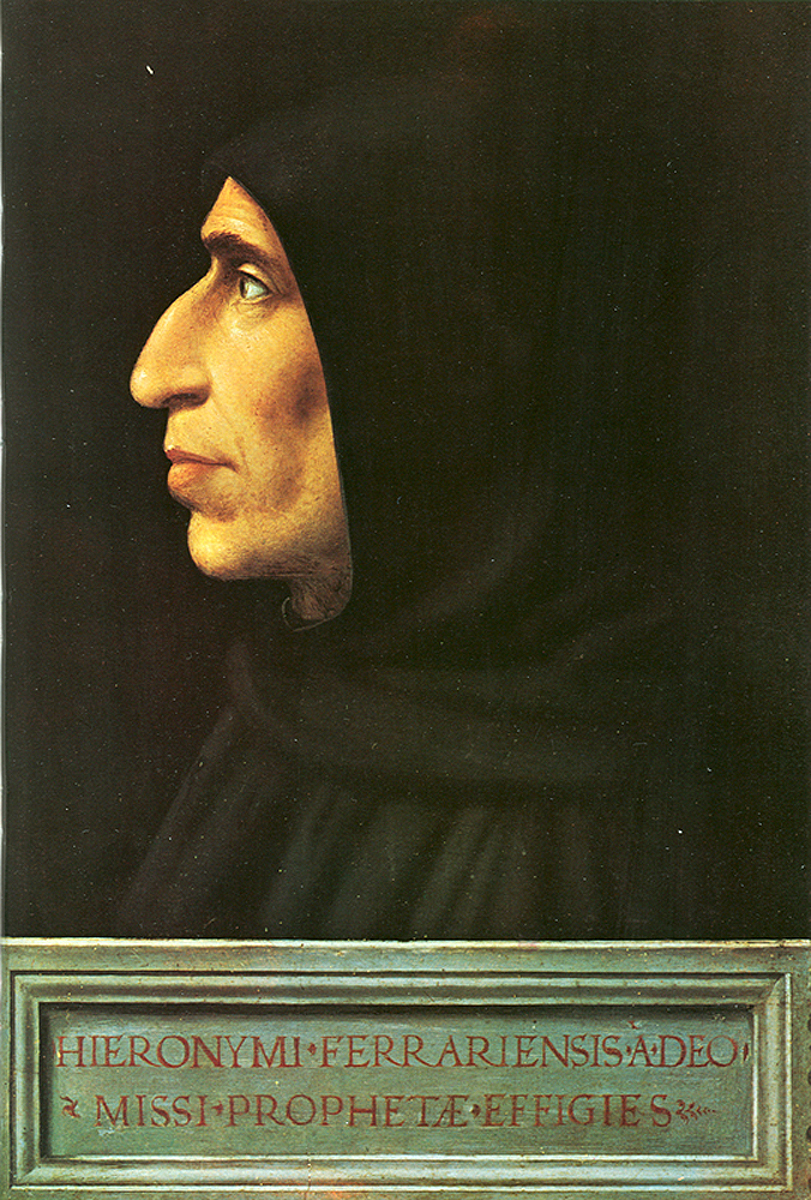Fiorenza (play) on:
[Wikipedia]
[Google]
[Amazon]

 ''Fiorenza'' is
''Fiorenza'' is

 ''Fiorenza'' is
''Fiorenza'' is Thomas Mann
Paul Thomas Mann ( , ; ; 6 June 1875 – 12 August 1955) was a German novelist, short story writer, social critic, philanthropist, essayist, and the 1929 Nobel Prize in Literature laureate. His highly symbolic and ironic epic novels and novell ...
's only completed play. It premiered on 11 May 1907 at the Frankfurt Playhouse.
Plot
The play takes place in 1492 inFlorence
Florence ( ; it, Firenze ) is a city in Central Italy and the capital city of the Tuscany region. It is the most populated city in Tuscany, with 383,083 inhabitants in 2016, and over 1,520,000 in its metropolitan area.Bilancio demografico ...
. It features the eloquent preacher Girolamo Savonarola. He had once courted Fiorenza, but was rejected. Now Savonarola preaches asceticism
Asceticism (; from the el, ἄσκησις, áskesis, exercise', 'training) is a lifestyle characterized by abstinence from sensual pleasures, often for the purpose of pursuing spiritual goals. Ascetics may withdraw from the world for their p ...
. Fiorenza is an allegory for the city of Florence, and is the mistress of the dying Lorenzo de' Medici
Lorenzo di Piero de' Medici (; 1 January 1449 – 8 April 1492) was an Italian statesman, banker, ''de facto'' ruler of the Florentine Republic and the most powerful and enthusiastic patron of Renaissance culture in Italy. Also known as Lorenzo ...
, the secular ruler of the city.
Fiorenza cannot escape the charismatic Savonarola, even if she had rejected him as a lover. She confronts the dying Lorenzo de' Medici with this. The art-loving, secular ruler recognizes the religious leader as an equal and calls him brother.
Reception
The play was not a success in the theater; it was strongly criticized by Alfred Kerr. Other critics such asTheodor Lessing
Karl Theodor Richard Lessing (8 February 1872, Hanover – 31 August 1933, Marienbad) was a German Jewish philosopher.
He is known for opposing the rise of Hindenburg as president of the Weimar Republic and for his classic on Jewish self-hatr ...
and Richard Schaukal stated the weakness of the play was the allegorical figure of Fiore Fiorenza. Mann's failure as a playwright probably brought him to the judgment that theater can be justified only as a popular entertainment.
Text
*Berlin: S. Fischer, 1906, 170 pages. First Edition (Potempa E 20.2, Burgin I, 4, Wilpert / Guhring ² 6) 1907 plays German plays Works by Thomas Mann Cultural depictions of Girolamo Savonarola Biographical plays about religious leaders Plays set in the 15th century Plays set in Italy Girolamo Savonarola {{1900s-play-stub